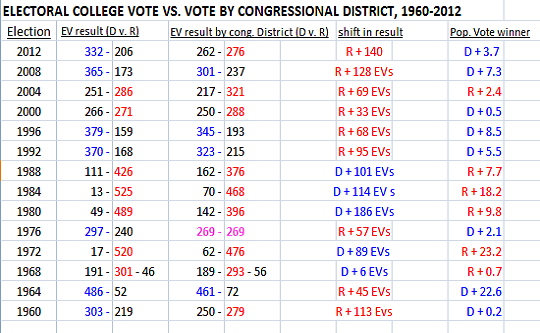gallantwarrior
Gold Member
The "fix" is so simple, it's painful. Given our technology, one-person, one-vote should be the way to go. Each registered voter is issued a one-time only access password. After they have presented appropriate identification proving their bona fides, they may then use that password to cast their vote. This prevents others from "buying" passwords to tip the vote. Once a password has been used, it is no longer valid. The reason for an electoral college is long gone.
This is a thought I had for a number of years, but I am not so sure anymore. I think the best thing to do is not to end the EC, but rather, to mend it.
The "Electoral College", a term we like to use, but which does not exist in the Constitution as a term at all, is a good way to keep 100s of splinter parties from forming. And I think that is a good thing.
The problem I see with the electoral college right now is how most states cast all electoral votes as a majority. I would find it much more...honest, to allow the electoral vote for each district to be cast as the majority in that district votes. As it stands now, all a candidate has to do is win a few states with a lot of votes and the rest of the country is screwed. If the electoral votes were cast by district, instead of by state, I think we would also see that the electoral and popular votes would sync more closely.

 on some great ideas and responses from GW and GT too.
on some great ideas and responses from GW and GT too. 



